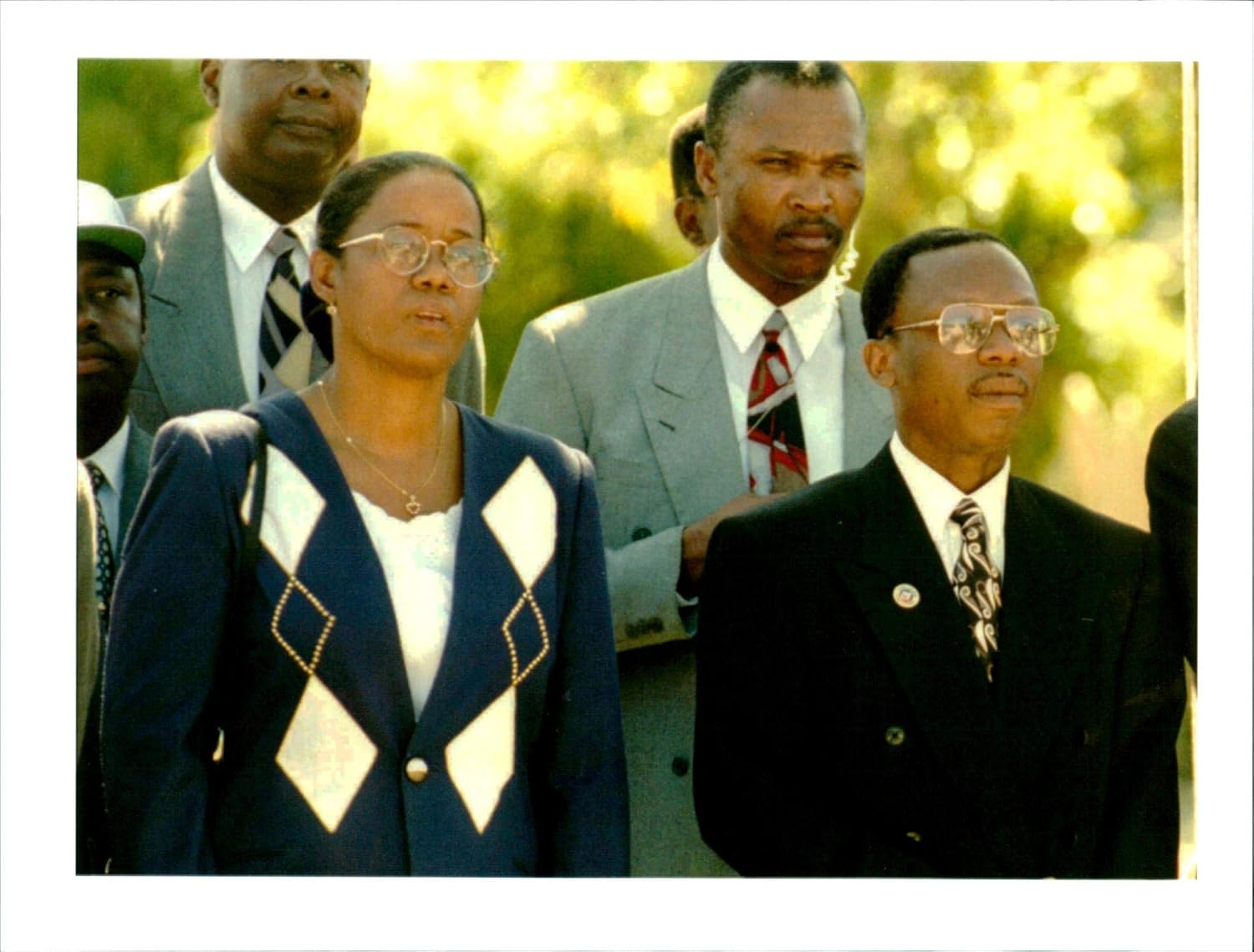Claudette Werleigh has served in various capacities in Haiti and across the world.
She has been a politician, development and peace campaigner but what she became widely known for were her achievements within just 100 days of being Haiti’s first female prime minister.
Then a foreign minister, a 49-year-old Werleigh was picked by President Jean-Bertrand Aristide in 1995 to be the prime minister.
She replaced Smarck Michel, who resigned in October that year over widespread opposition to his economic reforms.

Werleigh, not facing any opposition from lawmakers of both houses of parliament in Haiti, served as prime minister from November 7, 1995, to March 6, 1996.
Though she served for a short period, she did not fail in what was expected of her – to strengthen the leadership of the country and organize democratic presidential elections.
In what is the African diaspora’s oldest country, instability has been rearing its head in Haiti, with street protests recently reported in the capital Port-au-Prince.
For about half a century, the Caribbean nation has struggled to overcome the problems of poverty and inequality. It is a country that has also seen the worst of brutal dictatorships in the hands of the Duvalier family.
Though born in a well-to-do family in Cap-Haitien in 1946, Werleigh was able to witness the disparities in the system while growing up in Haiti.
The widening gap between classes in the country and later conflicts would directly influence her life’s work as a development campaigner, a peacemaker and an advocate for people at the grassroots level.
Later becoming active in politics and public administration, Werleigh trained and studied medicine in the U.S. and Switzerland before coming back to Haiti to take a degree course in law and economics at the State University in Port-au-Prince.
She subsequently worked for various non-governmental organizations focusing on humanitarian relief and adult literacy.
With her passion for education, particularly adult literacy, Werleigh started a school for adults and farmers in rural Haiti. Despite pockets of violence, natural and Western-ensured tragedies, the school remained open and was community-owned.

Werleigh subsequently served as secretary general of Caritas Haiti for 10 years, “coordinating relief assistance, civic education and respect for human rights” under the dictatorial rule of Jean-Claude Duvalier.
She would help found the League for Women’s Empowerment, an organization to promote the participation of women in politics in the 1990s.
This was after the fall of the brutal dictatorship of Doc Duvalier, and Jean Bertrand Aristide was now president.
Werleigh, having entered into full-time politics and public administration, would serve as Aristide’s Foreign Minister and Social Affairs Minister from 1990 to 1995, before briefly becoming Prime Minister in 1995 to 1996 – the first female to do so.
Picked by Aristide who was ousted in a September 1991 coup but later restored to power, Werleigh knew that her role was to keep the country’s leadership intact ahead of the democratic presidential elections.
As prime minister, she appointed a cabinet with 17 ministers, including four women. In agriculture, energy and road construction, she received a lot of financial support even though she later tried to reduce Haiti’s economic dependence, among other policies that compelled the IMF to hold back loans.
Nevertheless, it was during Werleigh’s period as prime minister that Haiti witnessed its first peaceful change of government since it became independent.
When the 1995 democratic elections were held, Rene Preval, an ally of Aristide and a former prime minister, won, making him the first elected head of state in Haitian history to peacefully receive power from a predecessor in office.
Preval would eventually become the first since independence to serve a full term in office, the first to be elected to non-successive full terms in office, and the first to peacefully hand over power.
Having worked with Aristide, he would have loved to have Werleigh continue as prime minister but reports say the majority in parliament, which needed to approve her as prime minister, had changed. Werleigh, therefore, withdrew and left the country.
Outside of Haiti, she ventured into issues of international peace and conflict, working as the director of conflict transformation programs at the Life and Peace Institute in Sweden until 2007, according to writer Bijoyeta Das.
She later worked with Pax Christi, a nongovernmental catholic peace movement with a mission “to transform a world shaken by violence, terrorism, deepening inequalities, and global insecurity.” There, Werleigh served as secretary general until the end of 2010.
She now remains a peacemaker who continues to advocate for policies that will cater to the needs of people of the grassroots.










